General description
Pulmonary surfactant is a mixture of phospholipids and protein, which is surface-active and secreted by type II epithelial cells into the alveolar space. There are four proteins present in the surfactant namely, SP (surfactant protein)-A, SP-B, SP-C or SFTPC and SP-D. SFTPC is a hydrophobic protein, which is produced as a proprotein and undergoes post-translational modification to have its NH2 and COOH propeptides removed. The mature active protein has a molecular weight of 3.7kDa. The proprotein is composed of 197 amino acids and is produced exclusively by alveolar type 2 (AT2) cells. SFTPC contains BRICHOS domain, which is suggested to prevent the aggregation of the peptide and regulate proteolytic processing of SFTPC proprotein. This gene is located on human chromosome 8p21.
Immunogen
Pulmonary surfactant-associated protein C Precursor recombinant protein epitope signature tag (PrEST)
Application
Anti-SFTPC antibody produced in rabbit has been used in immunohistochemistry (IHC) and immunofluorescence (IF).
Biochem/physiol Actions
SFTPC (surfactant protein C) stabilizes the pulmonary surfactant film and aids in the adsorption of phospholipids on the surfactant monolayer. This way it regulates the metabolism and dynamics of the phospholipids constituting pulmonary surfactant. Mutations in this gene are associated with interstitial lung disease (ILD) in infants. Mutations in SFTPC can lead to various disorders such as, chronic pneumonitis in infants, and usual or desquamative interstitial pneumonia and idiopathic pulmonary fibrosis in adults. G100S mutation in the BRICHOS domain of SFTPC proprotein, leads to increased endoplasmic reticulum (ER) stress and cell apoptosis. Therefore, G100S mutation in this gene is involved in the pathogenesis of familial pulmonary fibrosis in Japanese population. Mutations in SFTPC gene also result in combined pulmonary fibrosis and emphysema (CPFE) syndrome, which is characterized by emphysema, inflammation and fibrosis.
Features and Benefits
Prestige Antibodies® are highly characterized and extensively validated antibodies with the added benefit of all available characterization data for each target being accessible via the Human Protein Atlas portal linked just below the product name at the top of this page. The uniqueness and low cross-reactivity of the Prestige Antibodies® to other proteins are due to a thorough selection of antigen regions, affinity purification, and stringent selection. Prestige antigen controls are available for every corresponding Prestige Antibody and can be found in the linkage section.
Every Prestige Antibody is tested in the following ways:
- IHC tissue array of 44 normal human tissues and 20 of the most common cancer type tissues.
- Protein array of 364 human recombinant protein fragments.
Linkage
Corresponding Antigen APREST72206.
Physical form
Solution in phosphate-buffered saline, pH 7.2, containing 40% glycerol and 0.02% sodium azide
Legal Information
Prestige Antibodies is a registered trademark of Sigma-Aldrich Co. LLC
Disclaimer
Unless otherwise stated in our catalog or other company documentation accompanying the product(s), our products are intended for research use only and are not to be used for any other purpose, which includes but is not limited to, unauthorized commercial uses, in vitro diagnostic uses, ex vivo or in vivo therapeutic uses or any type of consumption or application to humans or animals.
- UPC:
- 51282923
- Condition:
- New
- Weight:
- 1.00 Ounces
- HazmatClass:
- No
- WeightUOM:
- LB
- MPN:
- HPA010928-25UL
- Product Size:
- 25UL












